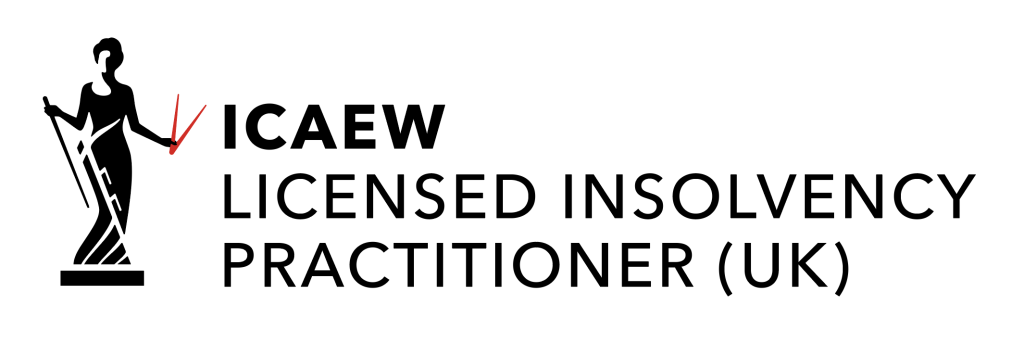Business Debt?
Anderson Brookes Insolvency Practitioners help directors review their financial position with regards to business debts and insolvency. We are licensed to close limited companies with debt. Get our expert guidance today
Free Business Debt Consultation
Why Directors Choose Anderson Brookes
With more than 25 years’ experience and thousands of directors helped, we’re trusted by business owners across the UK. You can speak directly with an expert insolvency practitioner and we’ll help you understand your options clearly and quickly. We specialise in working with small and medium businesses and we understand your perspective and priorities.
Ready to
Move On?
If you’re ready to close your company, stop creditor pressure, or just want to understand your next steps, we’re here to talk.
Call us now on 0800 1804 933 or request a call back - we’re here to help.
Business Debt Help – Speak to a Licensed IP
If you’re a limited company director facing growing debts and mounting pressure, you’re not alone. Every year, thousands of directors find themselves struggling with cash flow issues, unpaid HMRC bills, and creditor demands – unsure of their options or how to protect their position. At Anderson Brookes, our licensed insolvency practitioners (IPs) provide free, confidential advice specifically for directors of limited companies.
At Anderson Brookes, our licensed IPs are regulated by the ICAEW and have decades of experience helping directors of limited companies close or restructure their business properly.
Why Speak to a Licensed Insolvency Practitioner?
Only a licensed IPs are legally authorised to manage formal insolvency appointments. Speaking to an unlicensed adviser can be risky – they may charge unnecessary fees, offer incorrect guidance, or delay vital action by referring your case elsewhere. Always check that you’re speaking with a regulated professional. to manage formal insolvency procedures like Creditors’ Voluntary Liquidation (CVL), administration, or Company Voluntary Arrangements (CVAs). Many directors unknowingly speak to unregulated advisers who charge upfront fees and refer cases to third parties – wasting time and adding cost.
Don’t Wait Until It’s Too Late
One of the most common mistakes directors make is delaying action. The earlier you seek advice, the more options you’ll have to deal with the company’s debts while reducing personal risk. Whether your company is still trading, dormant, or facing legal action, we’ll help you understand the next steps clearly and quickly.
We’ve helped thousands of directors understand their responsibilities and options when a limited company is in debt. If your business is facing:
Unpaid HMRC debts (VAT, PAYE, Corporation Tax)
Pressure from trade creditors
Bounce Back Loan repayment issues
CCJs, winding-up petitions, or bailiff threats
Long-term cash flow problems
…we’re ready to help you take control.
Can you liquidate your limited company?
What to Expect from a Free Consultation
-
A confidential, no-obligation discussion with a licensed professional
-
A clear assessment of your company’s financial position
-
An explanation of your responsibilities and legal duties
-
A breakdown of all available options, including implications, costs, and timescales
We’ll explain whether liquidation is appropriate, what happens to directors in a CVL, and how to manage any personal guarantees or overdrawn loan accounts.
No-Nonsense Advice from a Regulated Insolvency Specialist
Business debt can feel overwhelming, but you don’t have to face it alone. Our aim is to give limited company directors a clear path forward – whether that’s through liquidation, a rescue solution, or simply understanding your position and obligations.
We’ll guide you step by step – without pressure or hidden costs – and ensure you receive regulated, professional support from the start.
Contact Anderson Brookes for Free Director Advice Today
Phone: 0800 1804 933
Email: advice@andersonbrookes.co.uk
Take control of your company’s debt with advice you can trust.
Director Redundancy – Could You Be Owed Thousands?
If your limited company is closed through Creditors’ Voluntary Liquidation, you may be eligible for director redundancy pay – a benefit many directors overlook. This support can provide a financial lifeline during what is often a stressful time., you may be eligible to claim director redundancy pay worth several thousand pounds, along with other statutory entitlements. Many directors are unaware of this support.
To qualify, you must:
Have worked for the company for at least 2 years
Be paid via PAYE
Work at least 16 hours per week in a regular role
If eligible, you may be able to claim redundancy pay, unpaid wages, holiday pay, and statutory notice pay – all processed via the government’s Redundancy Payments Service.
Testimonials
Our clients praise our professionalism, reliability, and the exceptional support we provide during challenging times, helping thousands of company directors through insolvency, liquidation, and business debt solutions.
Frequently Asked Questions
Have a company in England or Wales? These are your limited company business debt, liquidation and insolvency questions answered.
Can I liquidate the company myself?
No. Only a Licensed Insolvency Practitioner can place a company into liquidation.
What are the advantages of liquidation?
Placing the company into liquidation will stop debt enforcement, including bailiff action. The directors are usually in control of the process and can choose the liquidator. In most cases, it can be completed within two weeks without needing to attend any formal meetings. Company debts are usually written off unless they are personally guaranteed. Directors who act responsibly can show they handled the company’s financial affairs properly.
Is liquidation the same as dissolving the company?
No. Only a Licensed Insolvency Practitioner can liquidate a company. A director can apply to dissolve a company through Companies House, but only if certain conditions are met. If the company is insolvent, it may be a criminal offence to apply for strike-off. Always take professional advice before doing this. If you think you might qualify for dissolution, call us and we’ll explain the process. See our Licensed vs Unregulated page.
What is compulsory liquidation?
This happens when a creditor applies to court to wind up a company due to non-payment of a debt over £750. If the court agrees, the company is placed into compulsory liquidation. This often leads to more problems for directors, who may find it harder to defend against accusations such as wrongful trading. It is usually better to start the process voluntarily. See Strike Off vs Voluntary Liquidation for more details.
How much will it cost to liquidate my company?
It depends on your situation. In most cases, the directors do not pay the costs personally. The liquidation is paid for using company assets. We are a small practice based in Bolton with low overheads, so we offer some of the most competitive fees in the UK. All costs will be confirmed in writing before we proceed. You may also be interested in CVL Costs.
What is a phoenix company?
This is a new limited company that starts after an old one has gone into liquidation. It allows the business to carry on with the profitable parts of the original company. There are strict rules about reusing a company name, so it’s important to get advice before going ahead. For further detail and more simple explanations of insolvency and liquidation terms see our Glossary.
What is a Members’ Voluntary Liquidation (MVL)?
An MVL is used when a company is still solvent and can repay all its debts. It may be the right option if directors want to retire or step away from the business. MVLs can offer tax benefits, but they must be handled by a Licensed Insolvency Practitioner. See all types of liquidations.
What is wrongful trading?
If a company is insolvent and directors carry on trading, they may be accused of wrongful trading. A director could be held personally liable if they knew, or should have known, that the company couldn’t avoid liquidation and did not act to reduce losses. Acting early helps reduce this risk.
Do you only offer formal insolvency advice?
No. Many businesses contact us who do not need formal insolvency procedures. We help explore all the options, including self-help and informal solutions. If formal action is needed, our Licensed Insolvency Practitioner can act for you directly.


